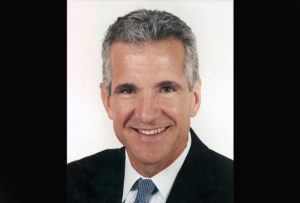
While corporate tax reform may have been a point of contention earlier this year, it”™s inarguable that business owners are seeing the practical effects of this new law. As companies across Westchester County decide what to do with their additional revenue, they must stay aware of how it will affect their investments and spending in the future.
Each quarter, KeyBank surveys owners and executives of 300 middle-market businesses from across the country to gain insight into selected topics and find out what they think about their companies in light of leading economic indicators, as well as the current political and business climates. Our most recent survey asked business owners how they plan to use the expected savings from tax reform.
Here”™s what we learned: unlike many large public U.S.-based companies, middle- market business owners plan to invest the savings from tax reform back into their businesses. Three quarters of respondents expect moderate to extremely high savings as a result of the new bill; one-third plan to expand or grow their businesses, 30 percent plan to strengthen their financial positions, 19 percent plan to increase compensation of employees, owners or shareholders and 16 percent plan to increase employee benefits. In contrast, many large U.S. corporations are using tax savings for aggressive stock buyback programs that boost stock prices and benefit executives or large shareholders.
What does this mean for Westchester businesses?
Tax law historically has been viewed as complex and challenging for any business. The tax reform bill was in part intended to simplify the process and enable businesses to free up more cash to invest in the economy. This strategy appears to be holding true, as 85 percent of survey respondents stated they felt confident in their understanding of the new law, as well as its ability to free up money for further investment.
Much of the planned reinvestment is expected to help trigger an economic boost across the nation, including here in Westchester County. For example, in addition to survey results, we have heard from a number of clients in this region who plan to invest more heavily in robotics to take advantage of the new more aggressive depreciations rules; at the same time offset increasing labor costs.
The effects of tax reform vary greatly depending on the size of your company, your industry and the goals of your leadership team. The Economist noted these differences earlier in the year, stating that domestic-oriented companies have the most to gain from this new tax reform. These companies usually face higher tax rates compared to their American counterparts who run a portion of their business overseas. Out of a range of industries, American-based telecoms and consumer companies are expected to benefit the most. AT&T itself predicted a rise in cashflow of $3 billion in 2018, which is nearly a fifth of their overall cashflow from the previous year.
How your banker can help
If you own or run a middle-market business in the region, you have many options to consider and many decisions to make about how you can leverage corporate tax savings. Whether you decide to increase cash reserves, acquire new assets or even implement a stock buyback program, there will be implications on business opportunities.
When considering growth and expansion plans for your business, your commercial banker is a good resource for bringing in value-added strategic ideas, insight and capital to help you achieve your goals. A trusted financial specialist can explain the intricacies of the tax law, analyze its impact on various strategies and help you determine the best decision for your organization.
Joe Markey is KeyBank”™s market president of Hudson Valley and Metro New York. He can be reached at jmarkey@key.com.

















